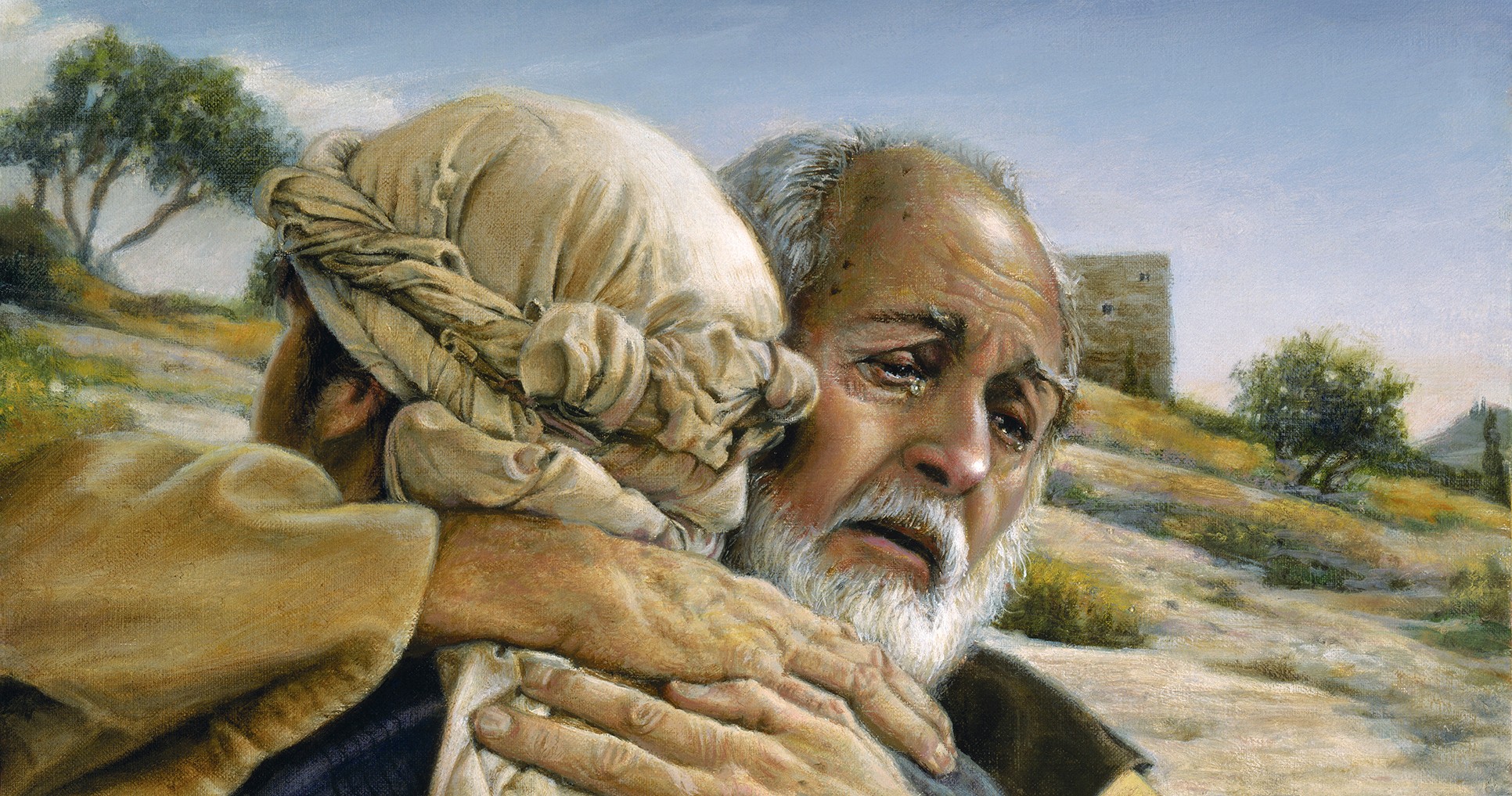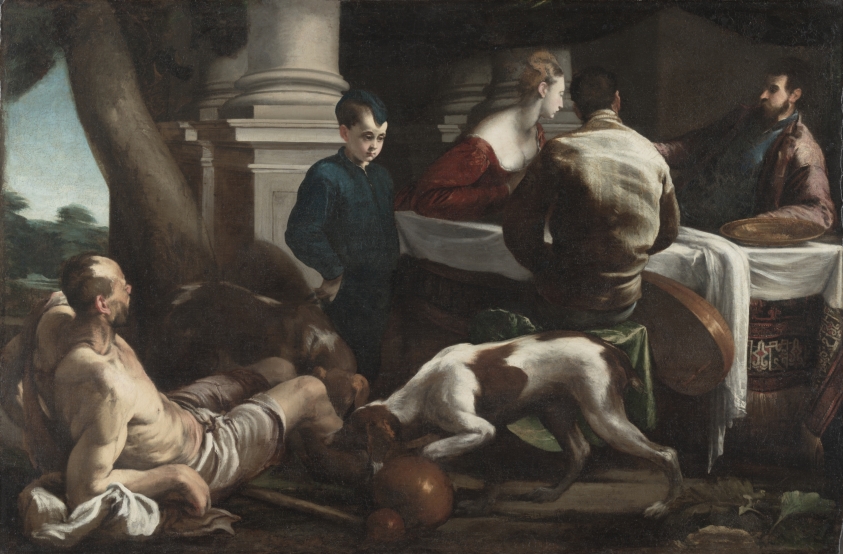
Today’s Gospel of the Prodigal Son helps us to take a peek into God’s infinite mercy. As Catholics, how do we receive the Father’s mercy and come to know the Fathers tender compassion?
In the parable, what did the son do that needed forgiveness? He took half of the family’s inheritance and spent it all on himself. He used the money for prostitutes. He did not care about his family, and wasn’t involved in their life, until he realized he lost everything. He was unconcerned about his family and how they might be worried about him.
Just think about it for a minute. What would most fathers do if their son left home and wasted half of the family’s inheritance and lived a life of debauchery and was with prostitutes? And after spending all the money would come home seeking a job at the family farm? I would think most fathers would tell their son, “Too bad, find a job somewhere else. You made your bed, sleep in it!” or maybe he would tell his son, he would hire him, but that he would have to pay pack the family inheritance. Wouldn’t most parents punish their children for doing something which so grievously offended their family?
Yet, in the parable, the father was extravagant in his mercy. So much so, the older son couldn’t believe the father would just forget everything and even celebrate with a feast. The older son, must have thought that his brother should be punished and make up for what he did.
The truth is, we should be punished for our sins, but there are ways in which we can be freed of the debt of our punishment, including indulgences, penance, acts of love and charity in this life or in the life to come in purgatory. All of which is tapping into the Father’s mercy.
Divine Mercy Sunday is the day of extravagant mercy in which all punishment due to sin is washed away in the ocean of God’s mercy. The Sunday after Easter, if we have gone to confession in Lent and receive Holy Communion in the state of grace, all punishment due to our sins are forgiven in the infinite ocean of God’s mercy and all purgatory time is gone. All sin and especially mortal sin when forgiven by God the Father, highlights the extravagant mercy of the Father.
Why is the Father so extravagant in His mercy? Because He gave everything He had, so that we could receive it. That everything was His Son, whom He sent into the world, to be scourged at the pillar, crowned with thorns, spat upon, slapped, carry a cross, stripped of his clothes, His hands and feet nailed to the Cross and then He died and if that wasn’t enough, after He was dead, His Heart with pierced with a lance.
God in is infinite mercy desires we come to confession to have our sins forgiven. He just wants us to tell Him, we are sorry and try to avoid sin again in the future. How can one reject God’s mercy, when He gave us everything, His only begotten Son?
The Father’s mercy is made most clear in the forgiveness of grievous sins. The Catechism of the Catholic Church states: "Confession to a priest is an essential part of the Sacrament of Penance. All mortal sins of which penitents after a diligent self-examination of conscious must be recounted by them in confession." Confession of mortal sins are required, so we can receive His abundant mercy from the Father. We do this because Jesus Himself, who revealed the Father’s love, mandated all Christians to confess their sins to a priest. He told His apostles, “Whose sins you forgive, are forgiven, whose sins you retain are retained.” St. James said, “Confess your sins to one another.” Historically, there has been confession from the beginning of Christianity. Only in the 1500’s due to the Protestant Rebellion, people began to avoid confession.
When we go to confession to a priest, we are asking forgiveness from God’s ambassador. In confession, when we hear the words, “I absolve you from your sins” and know for certain our sins are forgiven. We receive advice from the priest to help us with our sins. We receive extra graces to overcome our sins, so the more we go to confession, the easier it is to avoid sin. We amend our life and try to henceforth become a better follower of Jesus. Our conscience becomes better formed and we are able to see more clearly between right and wrong. Our relationship with God and neighbor is restored and the wounds of sin to the mystical body of Christ and wounds to our own soul are healed. Frequent confession helps us to forgive others more easily. We learn humility when we confess to another person. Frequent confession prevents us from falling into mortal sin. We walk in the confessional with a burden of sin, but the burden is taken away and we have peace in our heart. With our sins, our guilt is washed away.
If we commit a mortal sin, since we have confessions before every Mass and since people who come to Mass, then we must go to confession before we receive Holy Communion. Suppose we arrive late and are unable to go to confession, then we should remain in the pew. Some stay in the pews and don’t receive Communion for other reasons. For example, some non-Catholics attend Mass every weekend, some people may have accidentally ate something and have broken the one hour fast required before receiving Communion. Others may have an upset stomach and fear vomiting the Host. If we remain in the pew, we make a Spiritual Communion, which is on the back of the missalette.
If we commit a mortal sin and if we fail to go to confession, before receiving Holy Communion, we commit an additional mortal sin, called a sacrilegious Communion. St. Paul said, “A person should examine himself, and so eat the bread and drink the cup. For anyone who eats and drinks without discerning the body, eats and drinks judgment on himself.”
Something else to think about, is that some who commit a mortal sin, delay going to confession. And maybe only go to confession once or twice a year. How would you feel if someone greatly offended you, but the person waited months or even a year before they told you they were sorry? How does God feel if we fail to come to Him in confession and delay coming? God wants us to come to Him in confession right away. If we commit a serious sin, we should immediately come to God the Father in the Sacrament of Mercy and tell Him, we are sorry.
The Catechism states what happens if we die in the state of mortal sin. It states: “Mortal sin… causes exclusion from Christ's kingdom and the eternal death of hell, for our freedom has the power to make choices for ever, with no turning back.” (1861) So, why take the risk?
Confession forgives the eternal punishment due to sin. Regular confession is the way to indulge in God’s mercy. The more often we come to confession to receive mercy, the easier it is to give mercy to others. Monthly confession is recommended, but if we commit a mortal sin, we should come as soon as possible. We should run to the arms of our Father. The Father is waiting for us to come home in the confessional. He longs to give us His embrace. There in the confessional, we kneel at the foot of the Cross and are washed clean by the blood of Jesus. God loves us and just wants us to come to Him and tell Him, “Father, I am sorry for having sinned against heaven, against you.”
The joy of God’s mercy is truly the joy of knowing God’s love for us. On this Laetare Sunday, let us ask the Virgin Mary to give us the joy and peace in our heart that can only come from the Heart of a Father, who is loving, tender & compassionate to all His sons and daughters. Our Lord said the angels in heaven rejoice over one repentant sinner. If you want to throw a feast in heaven, come to confession!














